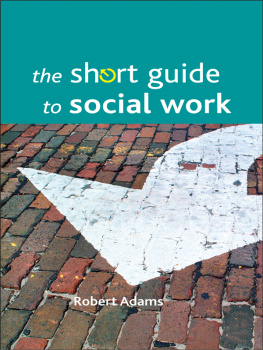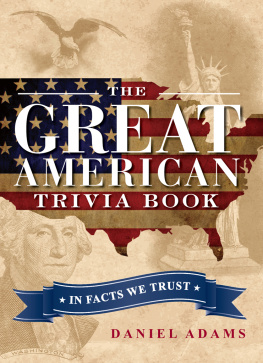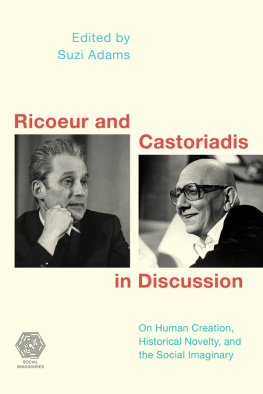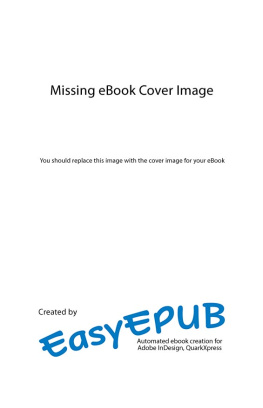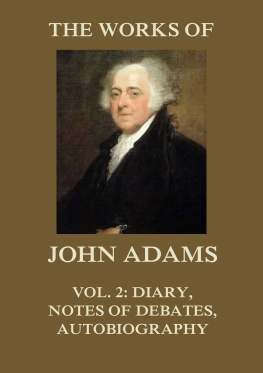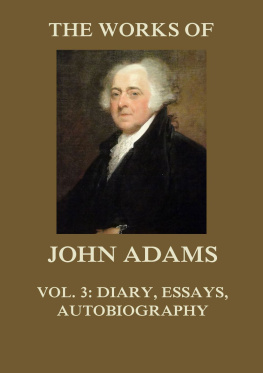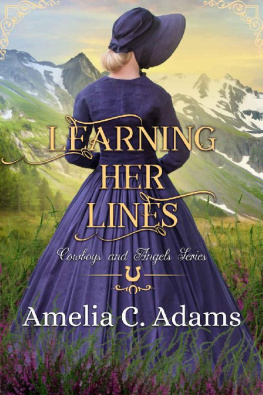Adams - The education of Henry Adams: an autobiography
Here you can read online Adams - The education of Henry Adams: an autobiography full text of the book (entire story) in english for free. Download pdf and epub, get meaning, cover and reviews about this ebook. City: New York;United States, year: 2000, publisher: Random House Publishing Group;Modern Library, genre: Non-fiction. Description of the work, (preface) as well as reviews are available. Best literature library LitArk.com created for fans of good reading and offers a wide selection of genres:
Romance novel
Science fiction
Adventure
Detective
Science
History
Home and family
Prose
Art
Politics
Computer
Non-fiction
Religion
Business
Children
Humor
Choose a favorite category and find really read worthwhile books. Enjoy immersion in the world of imagination, feel the emotions of the characters or learn something new for yourself, make an fascinating discovery.

- Book:The education of Henry Adams: an autobiography
- Author:
- Publisher:Random House Publishing Group;Modern Library
- Genre:
- Year:2000
- City:New York;United States
- Rating:5 / 5
- Favourites:Add to favourites
- Your mark:
- 100
- 1
- 2
- 3
- 4
- 5
The education of Henry Adams: an autobiography: summary, description and annotation
We offer to read an annotation, description, summary or preface (depends on what the author of the book "The education of Henry Adams: an autobiography" wrote himself). If you haven't found the necessary information about the book — write in the comments, we will try to find it.
The education of Henry Adams: an autobiography — read online for free the complete book (whole text) full work
Below is the text of the book, divided by pages. System saving the place of the last page read, allows you to conveniently read the book "The education of Henry Adams: an autobiography" online for free, without having to search again every time where you left off. Put a bookmark, and you can go to the page where you finished reading at any time.
Font size:
Interval:
Bookmark:
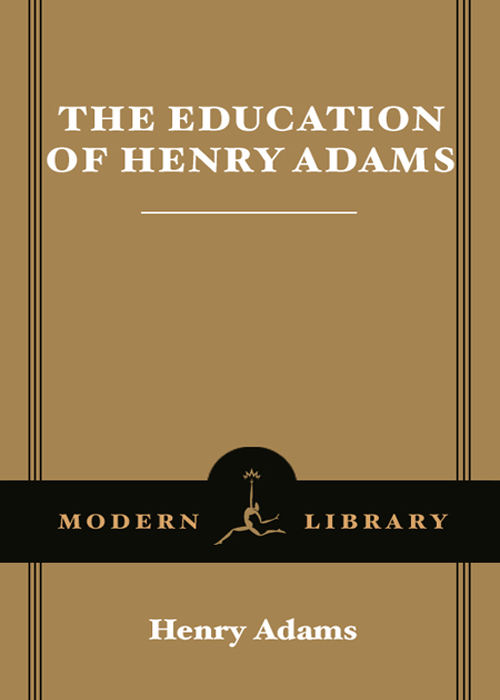
CONTENTS
PREFACE
JEAN JACQUES ROUSSEAU began his famous Confessions by a vehement appeal to the Deity: I have shown myself as I was; contemptible and vile when I was so; good, generous, sublime when I was so; I have unveiled my interior such as Thou thyself hast seen it, Eternal Father! Collect about me the innumerable swarm of my fellows; let them hear my confessions; let them groan at my unworthiness; let them blush at my meannesses! Let each of them discover his heart in his turn at the foot of Thy throne with the same sincerity; and then let any one of them tell Thee if he dares: I was a better man!
Jean Jacques was a very great educator in the manner of the eighteenth century, and has been commonly thought to have had more influence than any other teacher of his time; but his peculiar method of improving human nature has not been universally admired. Most educators of the nineteenth century have declined to show themselves before their scholars as objects more vile or contemptible than necessary, and even the humblest teacher hides, if possible, the faults with which nature has generously embellished us all, as it did Jean Jacques, thinking, as most religious minds are apt to do, that the Eternal Father himself may not feel unmixed pleasure at our thrusting under his eyes chiefly the least agreeable details of his creation.
As an infortunate result the twentieth century finds few recentguides to avoid, or to follow. American literature offers scarcely one working model for high education. The student must go back, beyond Jean Jacques, to Benjamin Franklin, to find a model even of self-teaching. Except in the abandoned sphere of the dead languages, no one has discussed what part of education has, in his personal experience, turned out to be useful, and what not. This volume attempts to discuss it.
As educator, Jean Jacques was, in one respect, easily first; he erected a monument of warning against the Ego. Since his time, and largely thanks to him, the Ego has steadily tended to efface itself, and, for purposes of model, to become a manikin on which the toilet of education is to be draped in order to show the fit or misfit of the clothes. The object of study is the garment, not the figure. The tailor adapts the manikin as well as the clothes to his patrons wants. The tailors object, in this volume, is to fit young men, in universities or elsewhere, to be men of the world, equipped for any emergency; and the garment offered to them is meant to show the faults of the patchwork fitted on their fathers.
At the utmost, the active-minded young man should ask of his teacher only mastery of his tools. The young man himself, the subject of education, is a certain form of energy; the object to be gained is economy of his force; the training is partly the clearing away of obstacles, partly the direct application of effort. Once acquired, the tools and models may be thrown away.
The manikin, therefore, has the same value as any other geometrical figure of three or more dimensions, which is used for the study of relation. For that purpose it cannot be spared; it is the only measure of motion, of proportion, of human condition; it must have the air of reality; must be taken for real; must be treated as though it had life. Who knows? Possibly it had!
February 16, 1907
T HE E DUCATION
OF
H ENRY A DAMS
LIST OF CHARACTERS
Only a fraction of the hundreds of names mentioned in The Education of Henry Adams are listed here. The selection that follows is confined mainly to Adamss family, plus the lesser-known members of his Washington circle and international acquaintance. Omitted are many historical characters too famous to need identification, and others whose appearances in the text are self-explanatory.
ADAMS, Abigail Smith (1744-1818) Great-grandmother HA; pioneer feminist, witty social and family correspondent.
ADAMS, Brooks (1848-1927) Brother HA; historian, author A Law of Civilization and Decay (1895).
ADAMS, Charles Francis (1807-86) Son John Quincy Adams, father HA; congressman, 1858-61; U.S. minister to Great Britain, 1861-68.
ADAMS, Charles Francis (1835-1915) Brother HA; lawyer, railroad executive, author (Richard Henry Dana, 1890; Trans-Atlantic Historical Solidarity, 1913).
ADAMS, John (1735-1826) Second president of the United States, 1796-1800; great-grandfather HA.
ADAMS, John Quincy (1767-1848) Sixth president of the United States, 1825-29; grandfather HA; senator from Massachusetts, 1803-08; U.S. minister to Russia, 1809-11; U.S. minister to Great Britain, 1815; secretary of state, 1817-25; abolitionist congressman, 1831-48.
ADAMS, John Quincy II (1833-94) Brother HA; Massachusetts Democratic leader in the 1870s.
ADAMS, Louisa Catherine (1831-70) Sister HA; m. Charles Kuhn.
ADAMS, Marian Hooper (Clover) (1843-85) HAs wife of 13 years, unmentioned in text. A descendant of two of Bostons oldest families, the Hoopers and the Sturgises. Small, ardently pious, crankily witty, father-obsessed, she had, in the words of Henry James, intellectual grace. See Otto Friedrich, Clover (New York, 1979).
AGASSIZ, Alexander (1835-1910) Son Louis Agassiz; geologist, author.
AGASSIZ, Louis (1807-73) Swiss geologist, Harvard professor, opponent of Darwinian theory; a seminal influence of the young HA.
ATKINSON, Edward (1827-1905) Boston business leader, economist, public-affairs commentator.
BADEAU, Adam (1831-95) Military secretary, multivolume biographer of Ulysses S. Grant.
BANCROFT, George (1800-91) Author of the classic ten-volume History of the United States,1834-76, U.S. minister to Great Britain, 1846-49; minister to Germany 1867-74: relative Clover Adams, scholarly consultant HA.
BANCROFT, John C. (1835-1901) Son of the great historian, cousin of Clover Adams.
BARLOW, Francis (Frank) (1834-96) Classmate HA; Civil War hero; prosecutor Tweed Ring in 1870s.
BARTLETT, William F. (ldquo;Frank) (1840-76) Friend HA; Civil War hero.
BAYARD, Thomas F. (1828-98) Secretary of state, 1885-89; U.S. Ambassador to Great Britain, 1893-97; free silver opponent.
BLAINE, James G. (1830-93) Senator from Maine, 1876-81; Republican nominee for president, 1884; secretary of state, 1889-92.
BOUTWELL, George S. (1819-1905) Massachusetts congressman, 1863-69; secretary of the treasury, 1869-73; senator, 1873-77.
BRIGHT, John (1811-89) British MP; orator, liberal reformer; supporter Lincoln.
BROUGHAM, Baron Henry P. (1778-1868) British MP; co-founder Edinburgh Review.
CAMERON, Elizabeth Sherman (1857-1944) Wife of Senator James Cameron; famous Washington beauty; beloved Madonna of HA.
CAMERON, James Donald (1833-1918) Senator from Pennsylvania, 1877-97.
CAMPBELL, George Douglas (1823-1900) British MP; Lord Privy Seal, 1859-66; orator, Lincoln supporter.
CARLYLE, Thomas (1795-1881) Distinguished Scottish historian (The French Revolution, 1837), intellectual, misanthrope; unspoken role model for HA. His Sartor Resartus (1836) describes an intellectual journey much like that of The Education.
CASSINI, Count Arthur P. (1835-1916) Russian ambassador to United States, 1897-1904.
CHAMBERLAIN, Joseph (1836-1914) Imperialist British colonial secretary, 1895-1903; father Austen and Neville Chamberlain.
CHANNING, William Ellery (1780-1842) Unitarian leader, theologian.
CHASE, Salmon P. (1808-73) Secretary of the treasury, 1861-64; Supreme Court chief justice, 1864-73.
CHILD, Francis J. (1825-96) Harvard professor, editor
Next pageFont size:
Interval:
Bookmark:
Similar books «The education of Henry Adams: an autobiography»
Look at similar books to The education of Henry Adams: an autobiography. We have selected literature similar in name and meaning in the hope of providing readers with more options to find new, interesting, not yet read works.
Discussion, reviews of the book The education of Henry Adams: an autobiography and just readers' own opinions. Leave your comments, write what you think about the work, its meaning or the main characters. Specify what exactly you liked and what you didn't like, and why you think so.

